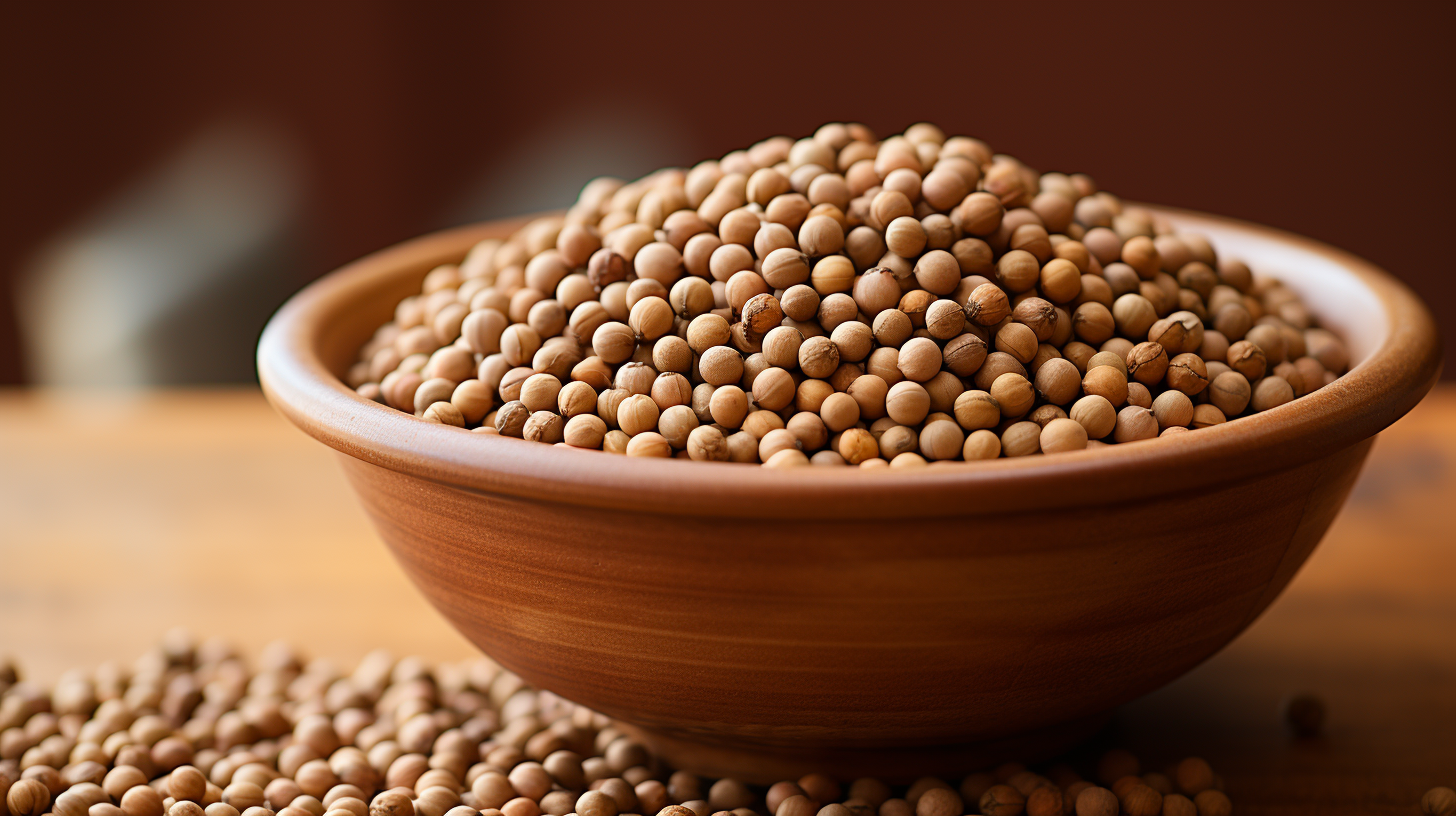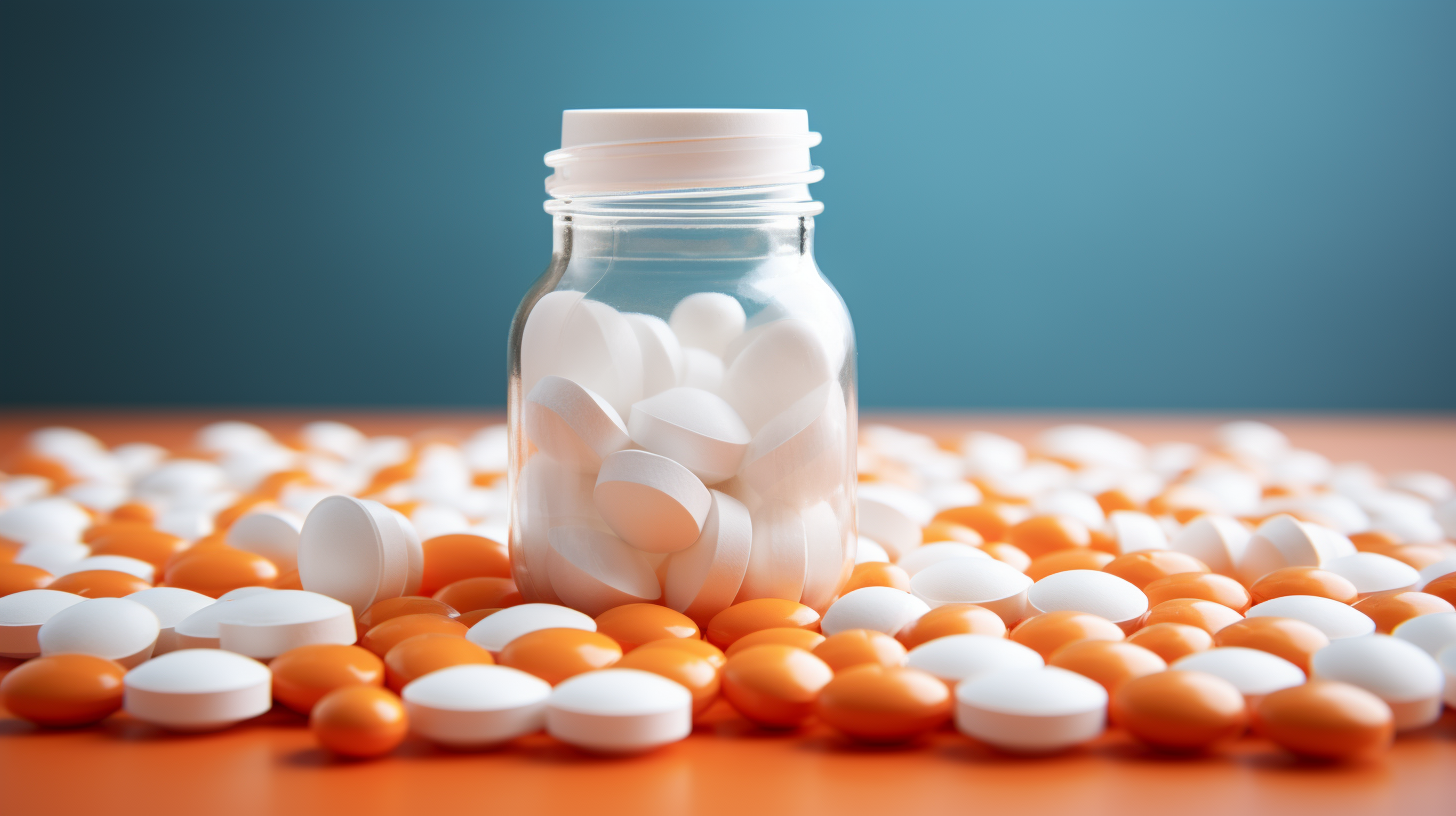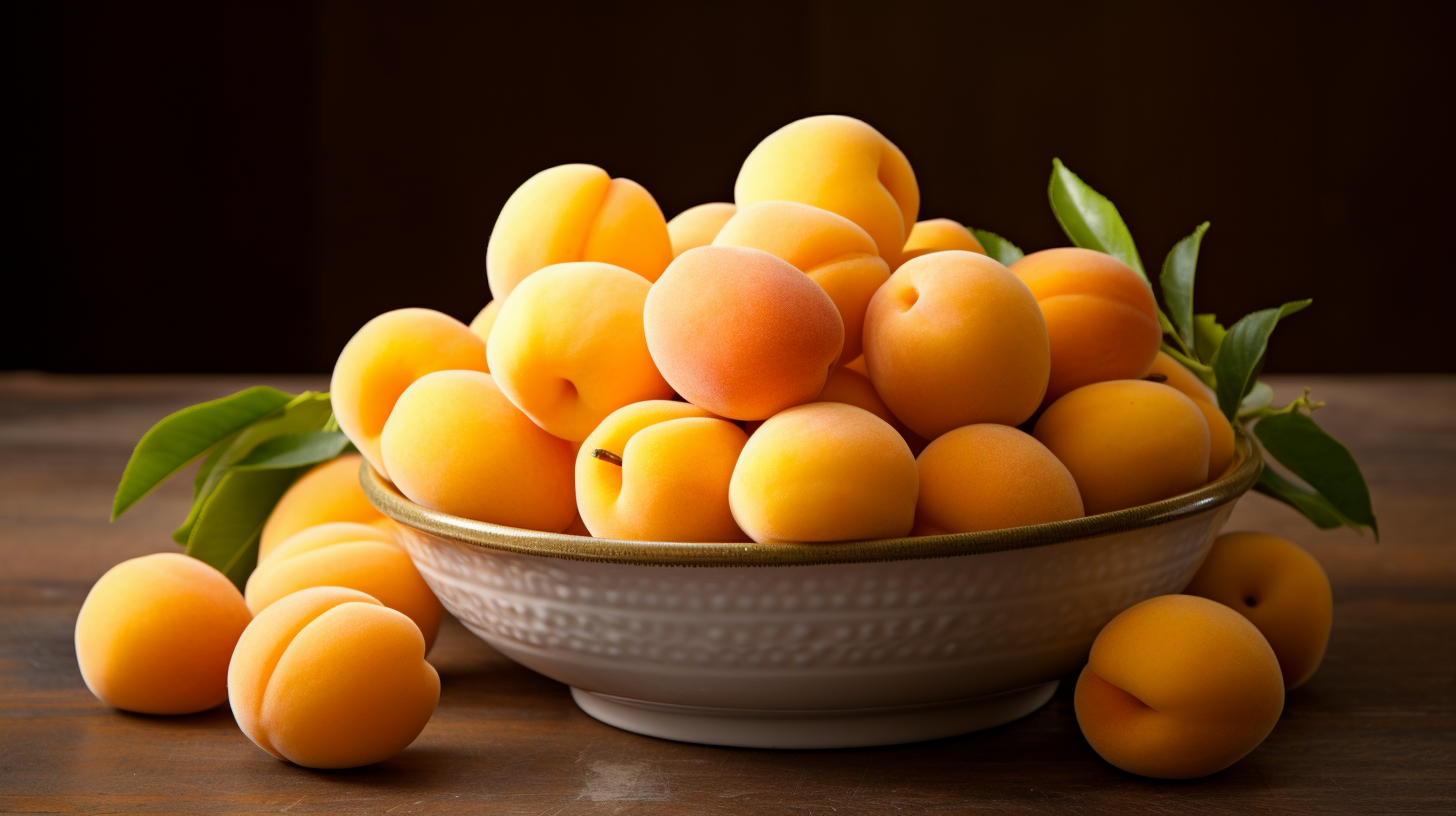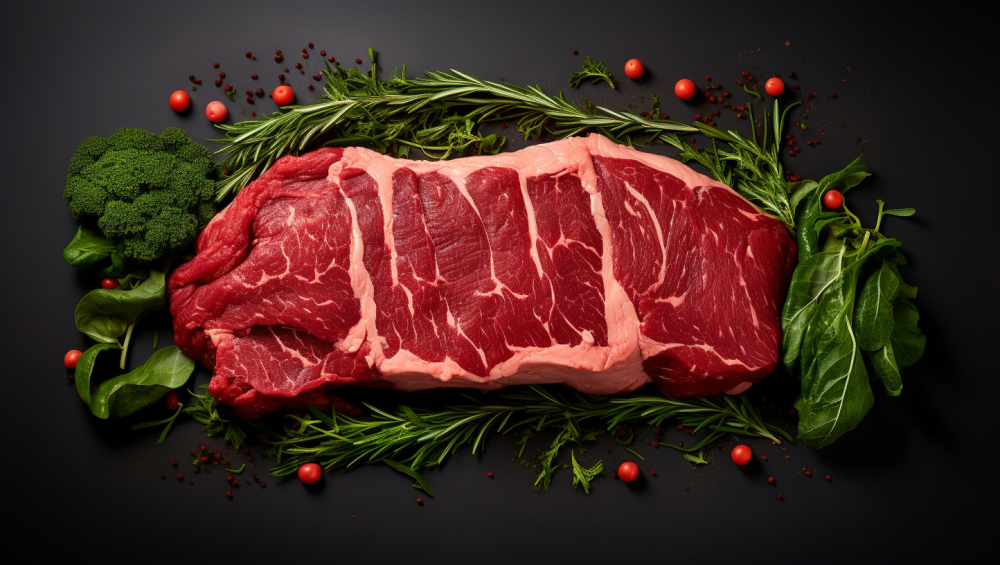How Iron Naturally Combats Fatigue And Enhances Immunity
Iron is an essential mineral that plays a vital role in various bodily functions, from producing red blood cells to supporting a healthy immune system. It is an important nutrient that your body needs to function correctly and efficiently.
Iron is particularly important for combating fatigue and enhancing immunity. Fatigue is a common issue that affects many people, and iron can help alleviate this problem. Moreover, a healthy immune system is crucial for fighting off infections and diseases, and iron plays a vital role in making this possible.
Ensuring that you have adequate iron in your diet is essential for your overall health and wellbeing. Read on to learn more about the health benefits of iron and how to incorporate it into your diet.
Key Takeaways:
- Iron is essential for combating fatigue and enhancing immunity
- A diet rich in iron can provide numerous health benefits
- Iron plays a vital role in the production of red blood cells and immune cells
- Iron deficiency can lead to tiredness, weakness, and a weakened immune system
- Iron-rich foods and supplements can help meet your daily iron needs
Understanding Iron Health Benefits
Iron is a crucial mineral for overall health, playing a vital role in many bodily functions. It helps transport oxygen from the lungs to the rest of the body, aids in energy production, and supports a healthy immune system.
Iron is also important for the formation of hemoglobin, a protein found in red blood cells that carries oxygen throughout the body. Without enough iron, the body may not produce enough healthy red blood cells, leading to anemia.
Iron also helps with brain function, muscle function, and regulation of body temperature. So, ensuring an adequate intake of iron is essential for optimal health.
Key takeaway: Iron is important for transporting oxygen, energy production, and immune function. It also plays a crucial role in the formation of hemoglobin and is necessary for brain function, muscle function, and temperature regulation.

The Role of Iron in Combating Fatigue
Feeling tired and weak? You may have an iron deficiency. Iron plays an essential role in combating fatigue, improving energy levels, and reducing feelings of tiredness. Iron helps our bodies transport oxygen to our muscles and tissues, allowing us to generate energy and stay alert throughout the day.
If you’re not getting enough iron in your diet, your body may struggle to generate energy efficiently, leading to feelings of exhaustion and weakness. Combating fatigue is one of the most well-known iron health benefits, making it essential to ensure you get enough iron in your diet.
Iron-rich foods like red meat, poultry, seafood, beans, and leafy greens can help boost your iron intake and reduce fatigue. However, it’s worth noting that consuming too much iron can be harmful. Therefore, it’s essential to monitor your iron intake and ensure you’re getting the right amount.
Iron supplements can also help combat fatigue when dietary intake doesn’t meet your needs. If you’re struggling with fatigue, it’s essential to speak with your healthcare provider and consider getting your iron levels checked.
How Iron Deficiency Contributes to Fatigue
Iron deficiency is one of the most common nutrient deficiencies worldwide, and it can lead to fatigue, weakness, and other health issues.
Iron is essential for producing hemoglobin, a protein in red blood cells that carries oxygen throughout the body. When your body doesn’t get enough iron, your red blood cells can’t produce enough hemoglobin, leading to a condition called anemia. Anemia can cause fatigue and weakness, making it difficult to perform everyday activities.
Iron is also necessary for producing adenosine triphosphate (ATP), a molecule that provides energy to our cells. Without enough iron in our bodies, we may not produce enough ATP, leading to the feeling of fatigue and exhaustion.
Women who experience heavy menstrual periods, pregnant women, and individuals who follow a vegetarian or vegan diet are particularly at risk for iron deficiency and may experience fatigue as a result.
By incorporating iron-rich foods and supplements into your diet, you can combat fatigue and maintain healthy energy levels.
Boosting Immunity with Iron
Iron is an essential mineral that not only combats fatigue but also boosts immunity. Adequate iron levels are necessary for the production of immune cells and for fighting off infections. Without sufficient iron, the immune system may weaken, making you more susceptible to illnesses.
Iron supports the growth and differentiation of immune cells, including lymphocytes and macrophages. These immune cells are responsible for identifying and destroying harmful invaders, such as bacteria and viruses. Iron also plays a role in antibody production, further enhancing the body’s immune response.
Iron deficiency can impair the immune system and increase the risk of infections. Studies have shown that even mild iron deficiency can affect immune function, making it important to maintain an adequate iron intake. Iron supplementation may be necessary in cases of severe iron deficiency or when dietary sources are inadequate.
To enhance iron absorption and support immune function, incorporate iron-rich foods into your diet. This includes lean meats, dark leafy greens, fortified grains, beans, and nuts. Pairing these foods with vitamin C sources, such as citrus fruits or red peppers, can also increase iron absorption.
Overall, iron is a vital nutrient for immunity and overall health. Ensuring an adequate intake of iron-rich foods can help support immune function and reduce the risk of infections.

Iron-Rich Foods for Optimal Health
Incorporating iron-rich foods into your diet is essential for maintaining optimal health. A diet rich in iron can help combat fatigue and enhance immunity, among other health benefits.
Animal-based sources of iron include lean meat, poultry, and fish. Plant-based sources of iron include legumes, fortified grains, and dark leafy greens. Aim to consume a variety of these iron-rich foods to ensure a balanced intake.
| Iron-Rich Food | Iron Content (mg) |
|---|---|
| Beef (3 oz) | 3.2 |
| Spinach (1 cup) | 6.4 |
| Lentils (1 cup) | 6.6 |
| Tuna (3 oz) | 1.0 |
| Oatmeal (1 cup) | 4.0 |
| Chickpeas (1 cup) | 4.7 |
It’s important to note that some iron-rich foods may also contain substances that inhibit iron absorption. For example, calcium can decrease iron absorption, while vitamin C can enhance it. Consult a healthcare professional for guidance on optimizing iron absorption in your diet.
In addition to incorporating iron-rich foods into your meals, consider cooking with cast iron cookware. Cooking acidic foods like tomato sauce in cast iron can increase iron content in your meals.
As with any dietary changes, it’s important to prioritize balanced eating habits and consult a healthcare professional if you have any concerns about your iron intake. By incorporating iron-rich foods into your diet, you can support your overall health and well-being.
Iron Deficiency Symptoms and Risks
If you experience any of the following symptoms, you may be at risk of iron deficiency:
- Fatigue and weakness
- Pale skin and nail beds
- Breathlessness
- Headaches and dizziness
- Difficulty concentrating
- Cold hands and feet
- Craving non-food items such as ice or dirt
Iron deficiency can lead to anemia, a condition in which there are not enough red blood cells to carry oxygen to the body’s tissues. This can result in even more severe symptoms, including:
- Shortness of breath
- Rapid or irregular heartbeat
- Chest pain
- Leg cramps
- Difficulty concentrating
Groups at higher risk of iron deficiency include:
- Pregnant women
- Breastfeeding women
- Children and teenagers
- Vegetarians and vegans
- People with gastrointestinal disorders
- People with chronic diseases
If you experience any of these symptoms or believe you may be at risk of iron deficiency, consult with a healthcare professional to determine the best course of action.

Iron Supplements: When to Consider Them
While a balanced diet with plenty of iron-rich foods is the best way to meet your body’s iron needs, sometimes dietary changes alone may not be enough. In such cases, iron supplementation may be necessary to ensure adequate iron levels in the body.
Before starting iron supplements, it’s important to consult with a healthcare professional. Taking too much iron can be harmful, especially for people with certain medical conditions or who are taking certain medications.
Iron supplements are generally recommended for individuals with iron deficiency anemia, a condition in which the body doesn’t have enough red blood cells due to low iron levels. This can occur due to inadequate dietary intake, poor iron absorption, or increased iron needs – such as during pregnancy.
Symptoms of iron deficiency anemia may include fatigue, weakness, rapid heartbeat, pale skin, and shortness of breath. If you experience any of these symptoms, it’s essential to consult with your healthcare provider to determine the underlying cause and appropriate treatment plan.
Iron supplements may also be recommended for individuals with chronic medical conditions that interfere with iron absorption, such as gastrointestinal disorders or kidney disease.
It’s important to note that iron supplements can cause some side effects, such as constipation, nausea, and stomach cramps. Taking iron supplements with food or choosing a slow-release iron supplement may help reduce these side effects.
In summary, iron supplements can be an effective way to address iron deficiency, but they should only be taken under the guidance of a healthcare professional. Be sure to discuss any concerns or questions you have about iron supplementation with your doctor.
Enhancing Iron Absorption
While consuming iron-rich foods is important, it’s equally crucial to ensure that your body is able to absorb the iron efficiently. Here are some factors that can help enhance iron absorption:
- Pair iron-rich foods with vitamin C sources: Vitamin C can increase iron absorption in the body. So, adding some citrus fruits, bell peppers, or tomatoes to your iron-rich meal can help make the most of the iron.
- Avoid calcium-rich foods during iron-rich meals: Calcium can interfere with iron absorption, so try to avoid consuming large amounts of dairy or calcium supplements with your iron-rich foods.
- Cook with cast iron: Cooking with cast iron cookware can increase the iron content of your food. So, try cooking your iron-rich meals in a cast iron skillet or pot to get an extra boost of iron.
- Soak or sprout beans and legumes: Soaking or sprouting beans and legumes prior to cooking can help reduce their phytate content, a compound that can hinder iron absorption.
By incorporating these strategies into your diet, you can increase iron absorption and make the most of your iron-rich foods. Remember to also avoid consuming tea and coffee with your meals, as they can inhibit iron absorption as well.

Iron-Rich Vegetables for a Balanced Diet
If you’re looking for a natural source of iron to incorporate into your diet, vegetables are an excellent option. Dark leafy greens like spinach, kale, and collard greens are particularly high in iron. One cup of cooked spinach contains about 6.4mg of iron, or about a third of the daily recommended intake for adults. Broccoli and Brussels sprouts are other cruciferous vegetables that are rich in iron.
But it’s not just the dark, leafy greens that pack an iron punch. Sweet potatoes, green beans, and peas are also great sources of this vital nutrient. Even better, these vegetables are versatile and can be included in a variety of dishes. Sweet potatoes can be mashed, baked, or roasted, while green beans and peas can be easily added to salads, soups, and stir-fries.
For vegetarians and vegans in particular, incorporating iron-rich vegetables into their diet is crucial. While meat is a common source of iron, it’s not the only one. Vegetables can provide a significant amount of iron for those who don’t consume meat.
Remember that in order to fully reap the benefits of these iron sources, it’s important to pair them with other vitamins and minerals that aid in absorption. Vitamin C is an excellent complement to iron, so consider adding some bell peppers or citrus fruits to your vegetable dishes to help the body absorb the iron.
| Veggie | Iron Content (mg) | Serving Size (cup, cooked) |
|---|---|---|
| Spinach | 6.4 | 1 |
| Kale | 1.2 | 1 |
| Broccoli | 1.1 | 1 |
| Brussels Sprouts | 1.0 | 1 |
| Sweet Potato | 0.8 | 1 medium |
| Green Beans | 0.9 | 1 |
| Peas | 0.9 | 1 |
Iron-Rich Fruits for a Nutrient Boost
Fruits are an excellent source of essential vitamins and minerals, including iron. Incorporating iron-rich fruits into your diet is a simple way to boost your nutrient intake and support overall health. Here are some of the top fruits to consider:
| Fruit | Iron Content (per 100g) |
|---|---|
| Prunes | 0.93mg |
| Raisins | 0.88mg |
| Dates | 0.90mg |
| Apricots | 0.39mg |
| Watermelon | 0.24mg |
| Strawberries | 0.41mg |
As you can see, prunes, raisins, and dates are some of the highest iron sources among fruits. Watermelon and strawberries are also excellent choices, providing antioxidant benefits in addition to iron.
Try incorporating these fruits into your daily diet in creative ways. Snack on dried fruits like raisins or make your own trail mix with a mix of nuts and dried fruits. Add fresh strawberries to your morning smoothie or slice up some watermelon for a refreshing snack.
Remember, while fruits do contain iron, it is non-heme iron which is not as well absorbed by the body as heme iron found in animal sources. Pairing iron-rich fruits with a source of vitamin C can help enhance absorption.
Overall, adding iron-rich fruits to your diet is a simple and delicious way to boost your nutrient intake and support optimal health.

Conclusion
In conclusion, iron plays a critical role in maintaining optimal health by combating fatigue and enhancing immunity. Incorporating iron-rich foods into your diet, such as lean meats, legumes, fortified grains, dark leafy greens, iron-rich vegetables, and iron-rich fruits, can help ensure adequate iron intake. Additionally, being aware of iron deficiency symptoms and risk factors, considering iron supplements when necessary, and enhancing iron absorption through dietary strategies can also support iron health benefits. It is essential to prioritize iron in your diet to maintain overall wellness. Remember, consulting a healthcare professional if you suspect iron deficiency is always recommended. Take control of your health by incorporating iron-rich foods into your diet today and reap the many benefits of this critical nutrient.
FAQ
Q: What are the health benefits of iron?
A: Iron has several health benefits, including combating fatigue and enhancing immunity. It helps transport oxygen throughout the body, supports energy production, and aids in maintaining a healthy immune system.
Q: How does iron combat fatigue?
A: Iron plays a crucial role in combating fatigue. Iron deficiency can lead to tiredness and weakness, while ensuring an adequate iron intake can help improve energy levels and reduce fatigue.
Q: How does iron enhance immunity?
A: Iron contributes to enhancing immunity by supporting the production of immune cells and fighting off infections. Iron deficiency can weaken the immune system, making it important to maintain optimal iron levels.
Q: What are some iron-rich foods?
A: Iron-rich foods include lean meats, legumes, fortified grains, and dark leafy greens. These foods can be incorporated into a healthy diet to ensure an adequate intake of iron.
Q: What are the symptoms and risks of iron deficiency?
A: Symptoms of iron deficiency include fatigue, weakness, pale skin, and difficulty concentrating. Certain groups, such as pregnant women, children, and vegetarians/vegans, are at a higher risk of iron deficiency.
Q: When should iron supplements be considered?
A: Iron supplements should be considered when dietary intake alone is not sufficient to meet iron needs. However, it is important to consult a healthcare professional before starting any supplements.
Q: How can iron absorption be enhanced?
A: Factors that enhance iron absorption include pairing iron-rich foods with vitamin C sources, avoiding calcium-rich foods during iron-rich meals, and using cooking techniques that increase iron bioavailability.
Q: What are some iron-rich vegetables?
A: Iron-rich vegetables include spinach, broccoli, kale, and Brussels sprouts. These vegetables can be included in a balanced diet to increase iron intake.
Q: What are some iron-rich fruits?
A: Iron-rich fruits include strawberries, watermelon, and prunes. These fruits provide a nutrient boost and can be incorporated into meals in creative ways.
Q: Why is iron important for overall health?
A: Iron is important for overall health as it combats fatigue and enhances immunity. It is crucial for oxygen transportation, energy production, immune cell production, and fighting off infections.









